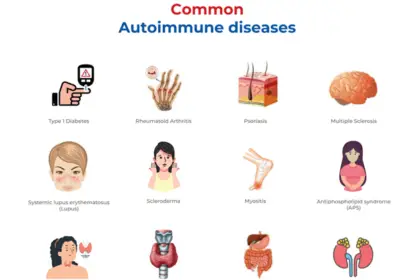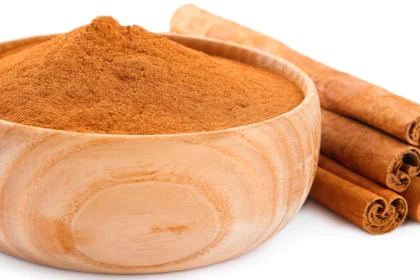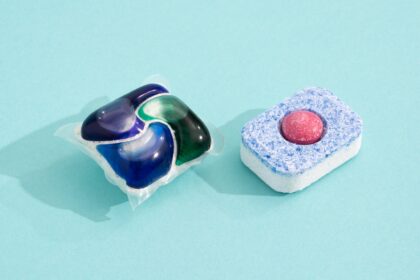When a new technology promises to “save” the food system by reducing waste and extending the shelf life of produce, it’s easy to get caught up in the hype. That’s exactly what has happened with Apeel, a company that has received massive investment and backing from powerful organizations. Their claim? A revolutionary coating that keeps fruits and vegetables fresh for weeks longer than nature intended.
But beneath the glossy marketing and sustainability promises lies a troubling question: what exactly is Apeel made of, and is it safe to eat?
Recently, concerns have emerged that Apeel’s key ingredient is citric acid — not the natural kind found in lemons or limes, but an industrial version produced using genetically modified (GMO) mold. And this ingredient has been linked to a disturbing range of health issues, from inflammation to digestive disorders to even cancer.
In this article, we’ll unpack the truth behind Apeel, the reality of how citric acid is produced, and why consumers should think twice before trusting corporate “solutions” that tamper with our food supply.
What Is Apeel?
Apeel is marketed as a plant-based, edible coating that makes produce last longer. The company claims their formula slows down spoilage, reduces oxidation, and prevents water loss — meaning your avocado, cucumber, or apple will stay fresh and firm for much longer than normal.
The idea sounds good at first glance: less food waste, fresher produce, and supposedly no need for preservatives. It has earned Apeel partnerships with major retailers, distributors, and even billion-dollar investors.
But as always, the devil is in the details. What exactly is in this coating that’s being applied to food around the world?
The Hidden Ingredient: Citric Acid
Citric acid is a widely used food additive that provides a tart flavor and acts as a preservative. On the surface, it doesn’t sound harmful — after all, lemons and oranges are full of it.
But here’s the catch: the citric acid used in most processed foods (and in Apeel) does not come from citrus fruits. Extracting citric acid directly from fruit would be too expensive for industrial production. Instead, the vast majority of citric acid on the market is created through a fermentation process involving Aspergillus niger — a black mold.
This mold is often genetically modified and grown on cheap sugar substrates like corn syrup (which itself is usually GMO). The end result is a powder that looks clean and harmless but carries risks that the food industry doesn’t talk about.
Health Risks of Industrial Citric Acid
While regulators have classified citric acid as “generally recognized as safe” (GRAS), growing evidence suggests that industrial citric acid may not be as harmless as advertised.
1. Inflammation
Studies and anecdotal reports have linked consumption of industrial citric acid to systemic inflammation. Some individuals experience joint pain, swelling, or flare-ups of autoimmune conditions after consuming foods high in added citric acid.
2. Digestive Disorders
Because citric acid is produced using mold, trace contaminants can remain in the final product. For sensitive individuals, this can trigger gastrointestinal problems like bloating, cramping, or diarrhea.
3. Allergic Reactions
People with mold sensitivities or allergies may be especially vulnerable. Reactions can include skin rashes, asthma-like symptoms, or other immune responses.
4. Potential Cancer Links
While more research is needed, some studies suggest that long-term consumption of mold-derived additives may contribute to oxidative stress and DNA damage — two hallmarks of cancer development.
The troubling part is that citric acid is now ubiquitous in processed foods, beverages, supplements, and even cleaning products. And with Apeel, it’s being sprayed onto the very produce we’re supposed to consider “fresh.”
The GMO Factor
Another layer of concern comes from the fact that the mold used to produce citric acid is often genetically modified to maximize yield. While companies claim that no GMO material remains in the final product, the reality is that genetic engineering introduces new risks we don’t fully understand.
Moreover, because this citric acid is typically produced using GMO corn syrup as a feedstock, it raises further concerns about contamination with glyphosate (a carcinogenic herbicide widely used in GMO farming).
So when you bite into an apple coated with Apeel, you’re not just eating fruit. You may be ingesting residues from GMO mold, GMO corn, and potentially glyphosate — all wrapped up in a shiny sustainability story.
Why This Matters
At the core, this is not just about citric acid or Apeel. It’s about trust and transparency in the food system.
Consumers have the right to know:
- How their food is produced
- What chemicals or coatings are applied
- Whether these substances are truly safe for long-term consumption
Unfortunately, corporations often hide behind “GRAS” designations and vague ingredient lists, leaving the public in the dark.
When a company like Apeel positions itself as a savior of the environment while quietly using industrial citric acid from GMO mold, it raises serious ethical questions. Are we solving food waste at the expense of human health?
Natural vs. Industrial Citric Acid
It’s important to distinguish between natural citric acid (the kind found in lemons, limes, and other fruits) and industrial citric acid (the mold-derived version).
Natural citric acid:
- Found in fresh fruit
- Consumed in moderation through a balanced diet
- Provides vitamin C and antioxidant benefits
Industrial citric acid:
- Produced using Aspergillus niger mold
- Frequently grown on GMO substrates
- May contain residues and contaminants
- Linked to inflammation and adverse health effects
When Apeel touts its coating as “plant-based,” it blurs this line and makes consumers think they’re eating something wholesome — when in reality, it’s just another industrial additive.
A Growing Pattern of Food Manipulation
Apeel is part of a broader trend in which the food industry seeks to extend control over the supply chain through synthetic solutions. Instead of supporting local farming, seasonal eating, and natural preservation methods, we’re offered biotech coatings, lab-made additives, and engineered foods.
Each step distances us further from the natural integrity of what food should be. And each step puts profits and scalability above human health.
What Can You Do?
If you’re concerned about Apeel and industrial citric acid, here are some steps you can take:
- 1. Buy Organic – Organic produce is less likely to be coated with synthetic preservatives or GMO-based additives.
- 2. Support Local Farmers – Shop at farmers’ markets where food is fresh and less tampered with.
- 3. Wash Produce Thoroughly – While Apeel is designed to be hard to wash off, scrubbing produce under running water may help reduce surface residues.
- 4. Educate Yourself – Learn how to read food labels and identify hidden citric acid in packaged goods.
- 5. Spread Awareness – Share information with friends and family so they can make informed choices too.
Final Thoughts
Apeel may be marketed as a miracle solution to food waste, but when you peel back the layers, it’s just another example of the food industry prioritizing shelf life and profit over transparency and health.
The key ingredient — industrial citric acid derived from GMO mold — is far from the natural, safe substance many assume it to be. Its links to inflammation, digestive problems, and potential long-term risks cannot be ignored.
At the end of the day, the choice is ours. Do we want food that looks fresh but hides a chemical story? Or do we want real, natural produce — even if it means accepting that fruits and vegetables are meant to ripen, age, and eventually rot?
Nature designed food to nourish us, not to sit indefinitely on a supermarket shelf. It’s time we start trusting nature again — not corporate science experiments.




